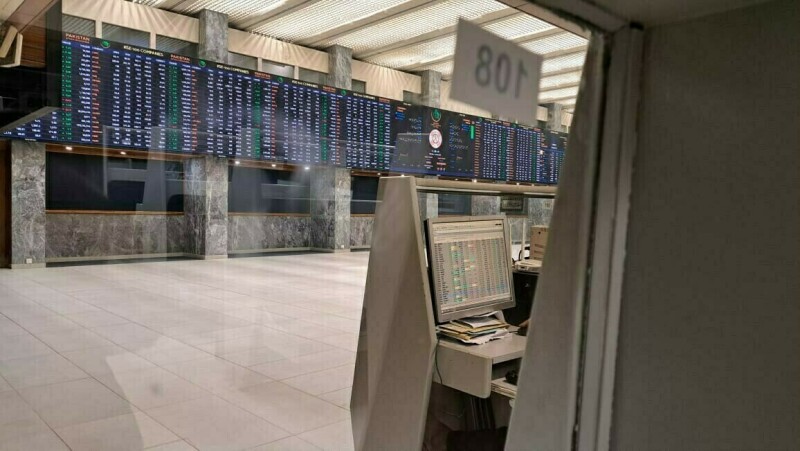The Pakistan Stock Exchange (PSX) opened the week with a strong buying spree, as its benchmark KSE-100 Index gained over 1,100 points during intra-day trading on Monday.
At 10:15am, the KSE-100 was hovering at 116,583.23, up by 1,113.89 points or 0.96% against the previous close.
On Friday, the benchmark index had closed at 115,469.35.
A rise in tensions between Pakistan and India following Pahalgam attack kept the stock market under pressure as the KSE-100 declined by 1.57% last week.
“This decline can be attributed to cross border tension with India and futures rollover week. Other development during the outgoing week included Pakistan and two foreign commercial banks reaching an understanding for a $1 billion loan at an interest rate of around 7.6%, and news that government decided to raise debt from the domestic capital market by issuing Pakistan’s first sustainable investment asset-backed Sukuk bonds for funding three clean energy projects, which need Rs52 billion more for completion,” Topline said in a report last week.
Relations between Pakistan and India plunged to their lowest level in years, with New Delhi accusing Islamabad of supporting “cross-border terrorism” after gunmen carried out the worst attack on civilians in contested Muslim-majority Indian Illegally Occupied Jammu and Kashmir’s (IIOJK) for a quarter of a century. Pakistan rejected the allegations.
The nuclear-armed arch rivals unleashed a raft of measures against each other in response, with India keeping a critical river water-sharing treaty in abeyance and Pakistan closing its airspace to Indian airlines.
Asian share markets and the dollar made a cautious start on Monday as confusion over US trade policy showed little sign of easing, in a week packed with major economic data and mega-tech earnings.
While US President Donald Trump has claimed progress is being made on trade with China, and many other countries, actual evidence is lacking. Treasury Secretary Scott Bessent failed on Sunday to back Trump’s assertion that tariff talks with China were under way.
“The uncertainty itself is at least as damaging as the tariffs themselves, hurting the USfsusp economy at least as much as the rest of the world,” said Christian Keller, head of economics research at Barclays.
“Even if the ongoing earnings season still shows robust numbers, many companies will likely prepare to hunker down until visibility improves,” he warned. “This makes a recession increasingly likely.”
Early action in markets was light, with MSCI’s broadest index of Asia-Pacific shares outside Japan edging up 0.1%. Japan’s Nikkei rose 0.9%, while South Korea firmed 0.2%.
This is intra-day report


